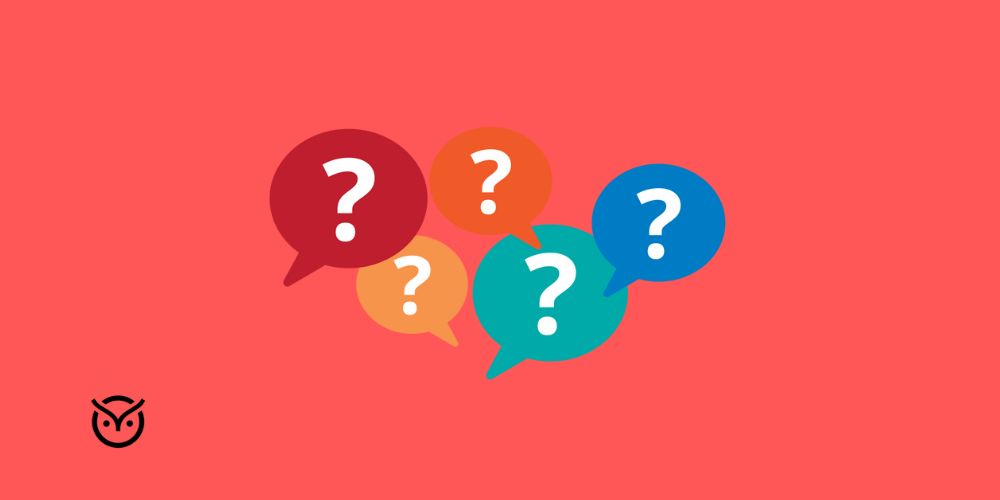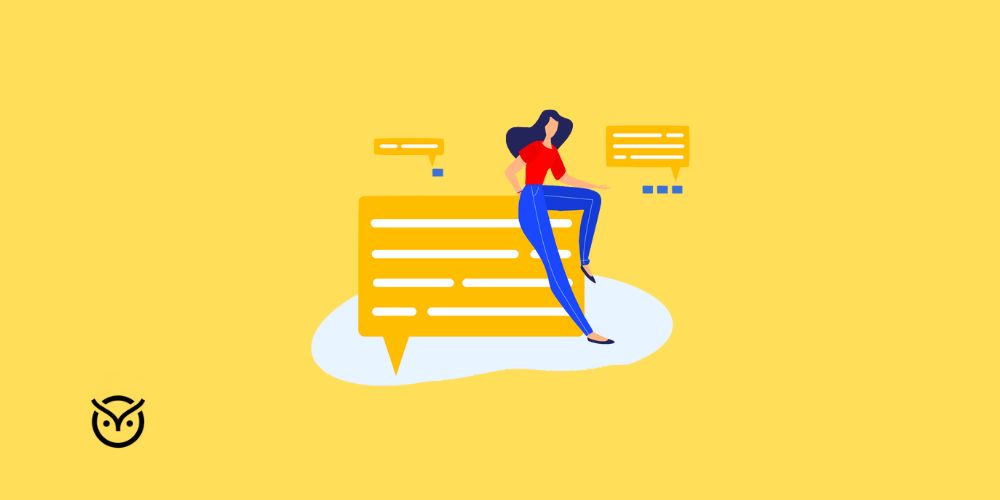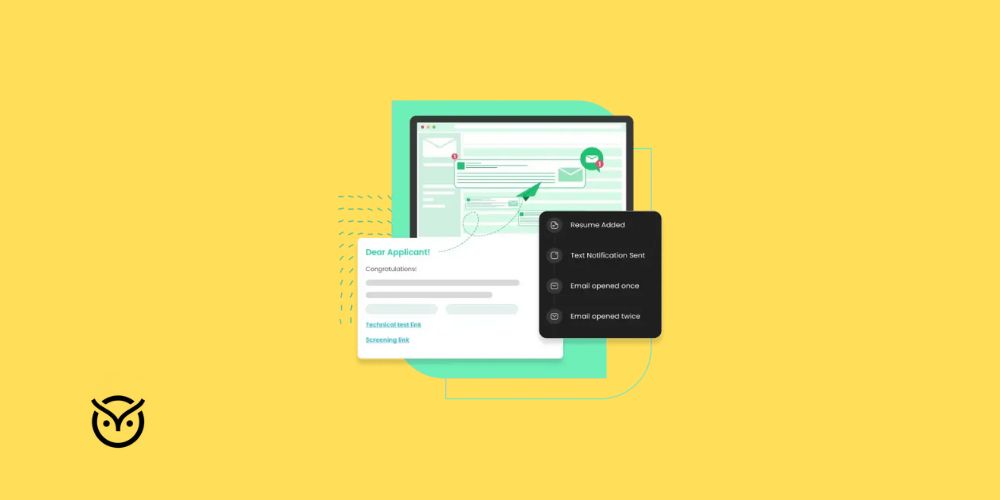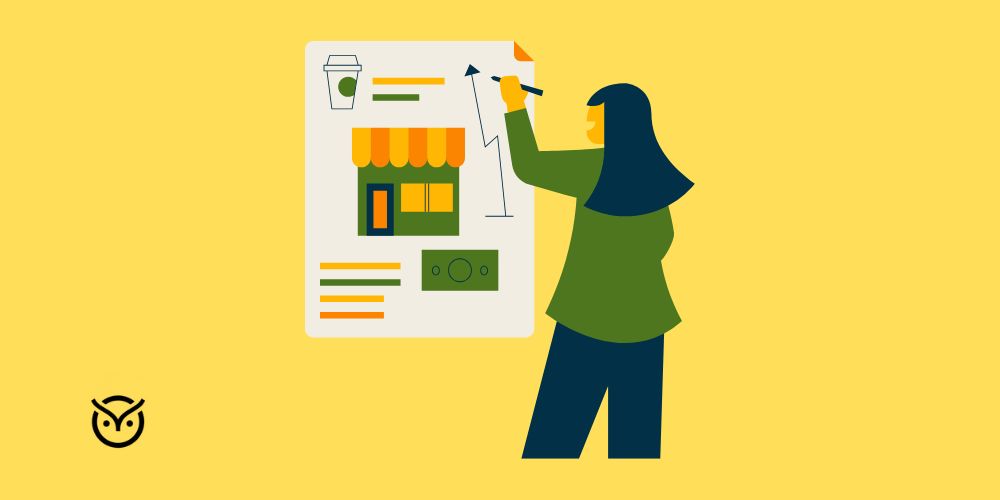
TL;DR
- Research the company, role, and industry before the interview
- Know the interview format (phone, virtual, panel, etc.)
- Practice answering and asking smart questions
- Dress appropriately and prep your outfit in advance
- Confirm logistics, test tech, and bring essentials
- Send a personalized thank-you email after the interview
Job interviews can feel like a high-stakes game, fast-paced, unpredictable, and packed with pressure. Feeling nervous is totally normal. But showing up without knowing how to prepare for a job interview or even what to bring to a job interview can knock your chances, no matter how qualified you are.
Crushing your interview isn’t about talent. It’s about preparation. This blog breaks it all down step by step, from researching the company to tackling those tough final interview questions with confidence. Not sure what to take to an interview? Need tips on how to dress or follow up? This blog has got you covered.
How confident do you feel about your next interview?
Why Interview Preparation Matters
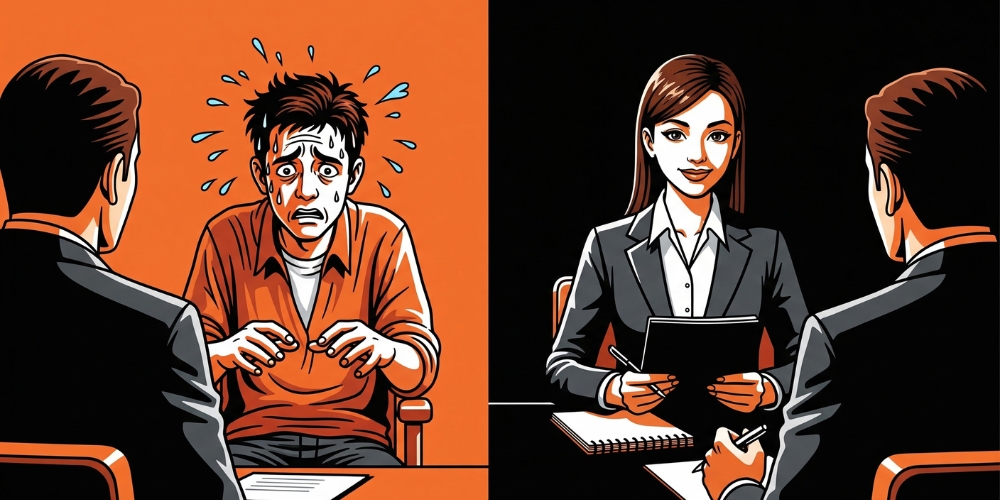
You only get one shot at a first impression, and in a job interview, that impression can be a deal-breaker. According to Live Recruiter, 93% of hiring professionals say candidate experience and communication skills heavily influence hiring decisions. What does that mean? Even the best resume can’t save you from a poorly handled interview.
Good prep does more than check a box. It helps you show up as more than just qualified. It shows you're the right fit. When you walk in with clarity, you're sending a message. You’re invested. You’ve done the work. And you're thinking ahead. That’s exactly what hiring managers want to see.
And when it comes to what to prepare for the final interview, where the stakes are often higher and conversations go deeper, your prep becomes even more critical. Employers will expect you to understand the company’s goals, know your value, and articulate why you belong there. Without preparation, you risk blending in. With it, you stand out.
Which Candidate Got the Job?
Two candidates walked into the same interview. Read their approaches and guess who impressed the panel.
Research the Role and Company
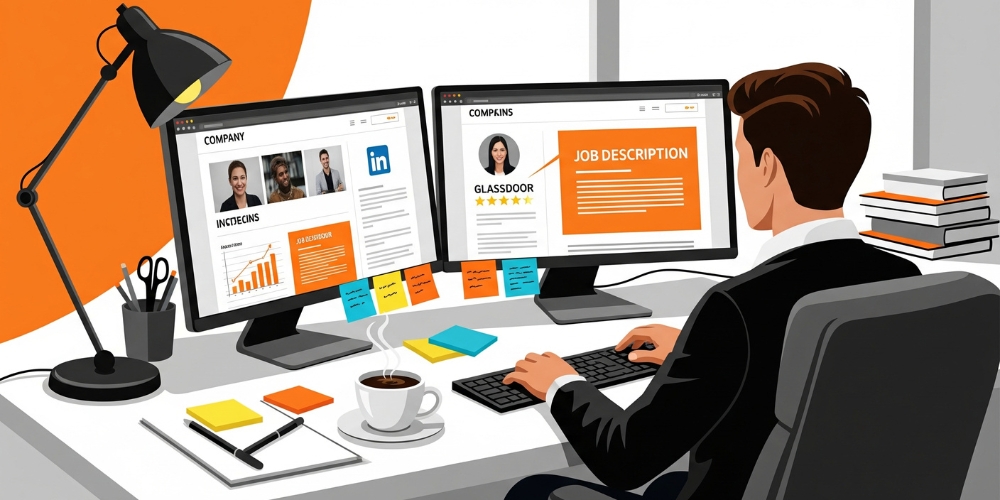
Want to stand out in your next interview? Start with research. Before you even think about what to bring to an interview, bring knowledge. Learn the basics about the company, the team, and the role itself. When you show up with that context, your answers hit harder, and you instantly come off as prepared, thoughtful, and genuinely interested.
Read the Job Description Carefully
Highlight key skills, duties, and qualifications. Think about how your experience aligns with each point.
Visit the Company’s Website
Learn their mission, core values, leadership team, and any recent news or product launches.
Explore their Social Media
It’s a great way to understand company culture and tone.
Check Platforms like Glassdoor
You’ll get insight into employee experience, interview formats, and even sample questions.
Research Industry Trends and Competitors
This will help you craft smart, strategic answers, especially helpful in final interview questions that go beyond surface-level.
Pro tip: Make notes! Jot down a few facts or company goals and find ways to weave them into your responses naturally. When the interviewer asks why you want to join them or why you’re a fit, you’ll be prepared. That level of insight is what separates the “maybe” pile from the “let’s hire them” one.
Research the Role and Company
Click each card to reveal a smart research tip before your interview.
Understand the Job Interview Format
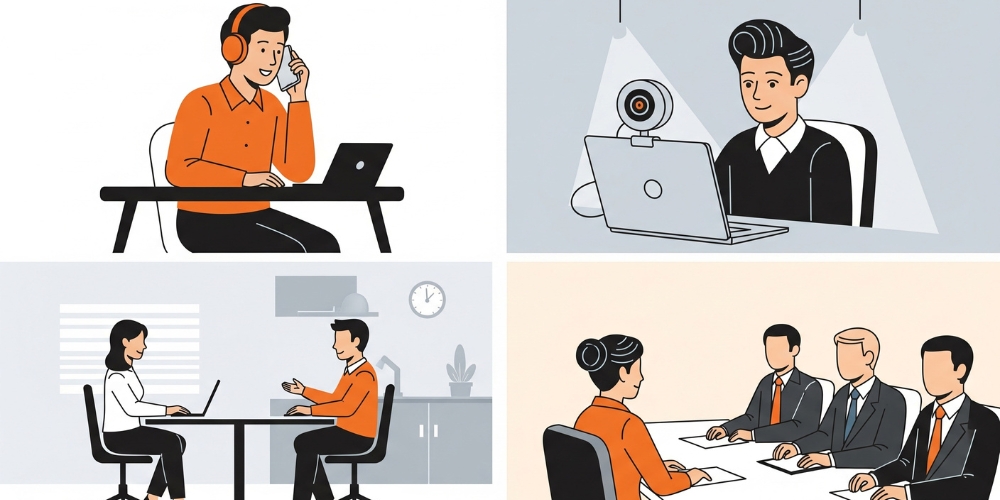
Not all interviews are created equal. To fully grasp how to prepare for a job interview, you need to know what kind of interview you’re walking into. A panel interview isn’t the same as a one-on-one chat, and a video call requires different prep than an in-person meeting.
Here are some common interview formats and how to handle them:
Phone Interviews
These are usually initial screenings. Focus on voice clarity, tone, and having your notes handy (no one can see you!).
Virtual Interviews
According to Indeed, 82% of employers now use virtual interviews at some stage of the process. So you need to test your tech beforehand. Use a professional background and make eye contact through the camera.
Panel Interviews
Common for managerial roles. Practice addressing multiple people and remembering names.
Behavioral Interviews
Often used to assess soft skills. Use the STAR method (Situation, Task, Action, Result) to structure your answers.
Don’t Forget: AI is Part of the Process Now
Today, recruiters use AI to match candidates even before the interview begins, from scanning resumes to analyzing video responses. So, prep smart: tailor your resume with job-specific keywords and practice clear, confident communication. AI may be assessing not just what you say but how you say it.
Knowing the format ahead of time gives you a huge advantage as it allows you to tailor your strategy, body language, and prep accordingly. It also prevents last-minute panic about things like lighting, internet speed, or which browser works best for that Zoom link.
Understand the Job Interview Format
Drag each interview type onto the correct preparation tip.
Practice Common Questions
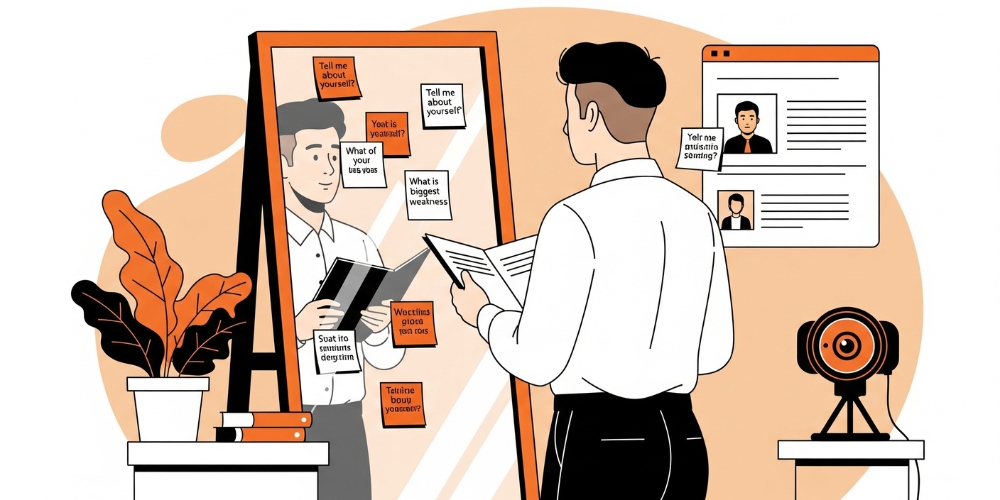
Preparation isn’t just about knowing facts. It’s about getting comfortable saying them. One of the most powerful ways to succeed is to practice common questions out loud. This helps you polish your delivery, catch awkward phrasing, and avoid rambling.
Here are a few must-practice questions (and how they tie back to your keywords):
- “How do you explain yourself in three words?” – Nail your personal brand in a concise, authentic way.
- “Tell me about yourself.” – Focus on relevance, not your life story.
- “Why do you want to work here?” – Show you’ve done your research.
- “Tell me about a time you faced a challenge at work.” – Use the STAR method here.
- “What are your strengths and weaknesses?” – Be honest, but strategic.
- “Do you have any questions for us?” – More on that next.
Want a pro tip? Record yourself. Then listen back and make tweaks. You’ll be amazed at how much you can improve just by hearing yourself from the other side.
And for final interview questions, expect more role-specific or leadership-oriented scenarios. Think “How would you improve our onboarding process?” or “What would your first 30 days in this role look like?” These require strategic thinking and should reflect both your experience and what you've learned about the company.
Practice Common Questions
Click the button to get a random interview question and test yourself under pressure!
Prepare Your Own Questions for the Interviewer
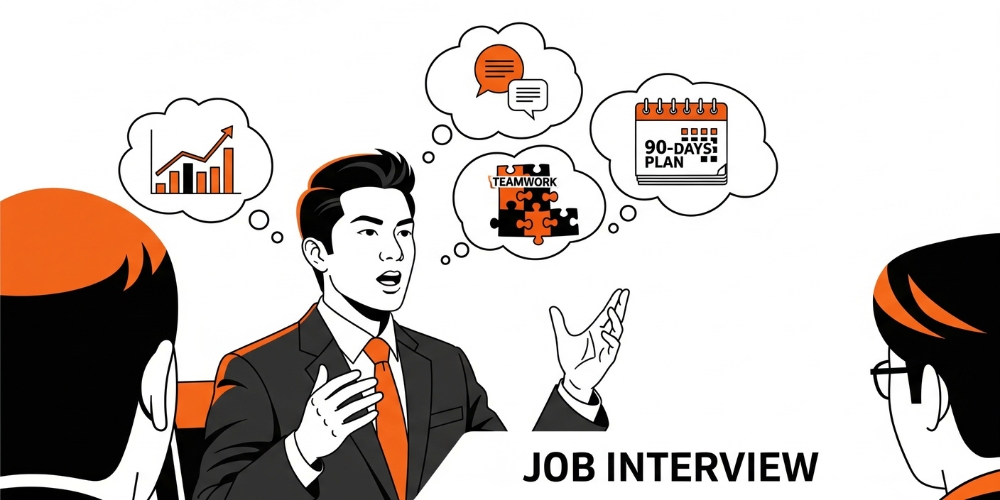
This isn’t just something you do at the end. It’s part of how you stand out. Great candidates ask great questions. It shows you’ve done your homework and that you actually care about the role, the team, and how things work. Skipping this step? That’s a red flag. It can make you seem unprepared or not all that interested.
Think of your questions as part of your pitch. You’re not just there to answer, you’re also there to figure out if this is the right fit for you.
Here are some great ones to keep in your back pocket:
- “How does the company support growth and development for this role?”
- “What would success look like in the first 90 days?”
- “How does your team approach feedback and performance reviews?”
- “What challenges is the team currently facing?”
Avoid asking questions that you could’ve found answers to online like “What do you do here?” Instead, show you’ve done your homework and now want to go deeper.
And yes, asking what the next steps are is not just okay, it’s encouraged. It shows confidence and lets you plan accordingly (especially helpful if you need to prep more for what to prepare for the final interview down the line).
Interview Detective: Unlock the Right Questions
Answer the clues below to reveal which smart questions YOU should ask during your interview.
Plan Your Outfit
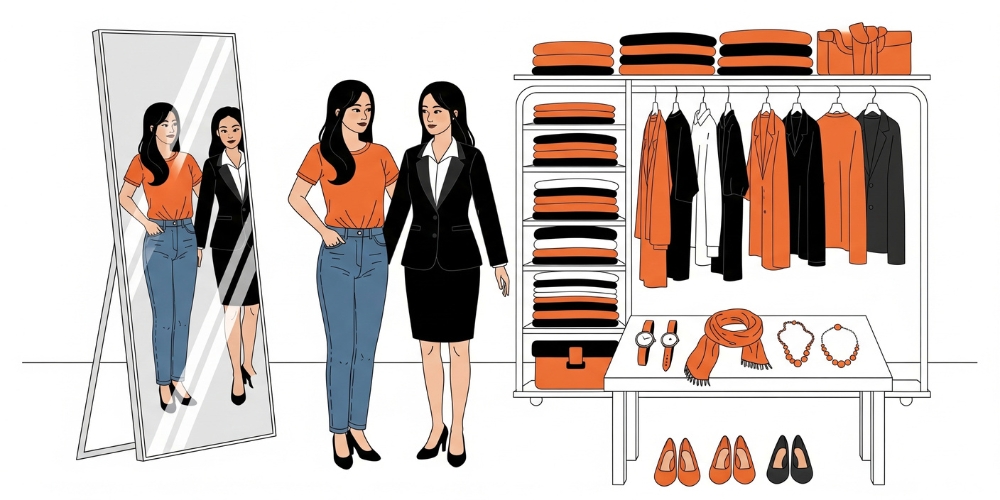
When preparing for an interview, your answers matter, but so does your appearance. According to Head Resourcing, 37% of bosses say they consider the way a candidate dresses before hiring them. That first visual snapshot happens before you even say a word. Dressing appropriately shows that you understand the company culture, take the opportunity seriously, and pay attention to details.
Here’s how to choose wisely:
Research the Dress Code
Tech startups may be casual, but law firms won’t be. Check the company’s LinkedIn page or team photos to get a sense of style.
Dress One Step Above
If the company dresses business casual, aim for smart business attire.
Stick to Neutral or Solid Colors
Avoid anything too flashy or distracting on camera or in person.
Mind your Grooming
Tidy hair, clean nails, and wrinkle-free clothes go a long way.
If it’s a virtual interview, don’t slack off, yes, that includes wearing pants! Keep your background clean and your outfit professional. After all, when you’re thinking about how to prepare for a job interview, planning your outfit is part of signaling “I belong here.”
Dress the Candidate: What Should You Wear?
Choose the setting and select your outfit to get personalized feedback.
Choose Your Outfit:
Get the Logistics Right
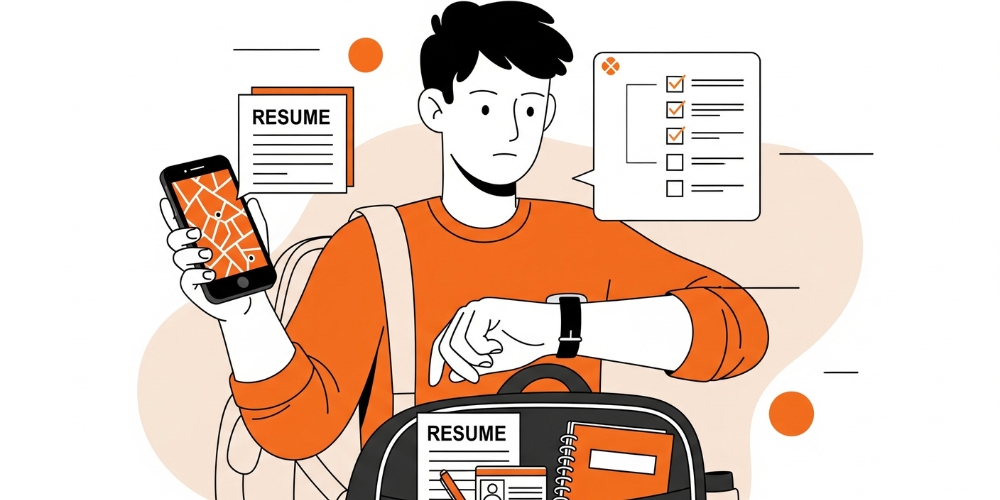
Don’t let all your preparation go to waste because of a last-minute scramble. In fact, being disorganized can quickly send the wrong message. And worse, hiring managers can also rule out candidates just for arriving late. That’s a simple mistake that’s easy to avoid.
Here’s how to handle the details:
Confirm Everything
Interview time, date, location, and the names of your interviewers. For remote interviews, double-check your time zone and calendar settings.
Know your Route
If it’s in-person, map out traffic and parking the night before.
Test your Tech
For virtual interviews, test your mic, camera, and internet connection in advance. Keep your phone nearby as backup.
Pack Smart
If you’re wondering what to bring to a job interview or what to take to an interview, include:
- Printed copies of your resume
- A notebook and a pen
- A list of questions for the interviewer
- A portfolio or work samples, if relevant
- A government-issued ID (sometimes required at the reception desk)
Being logistically prepared keeps your mind clear and lets you focus on the conversation, not the commute or camera settings.
Interview Countdown Checklist
Tick off each task as you prepare — your progress will be saved!
Follow Up After the Interview
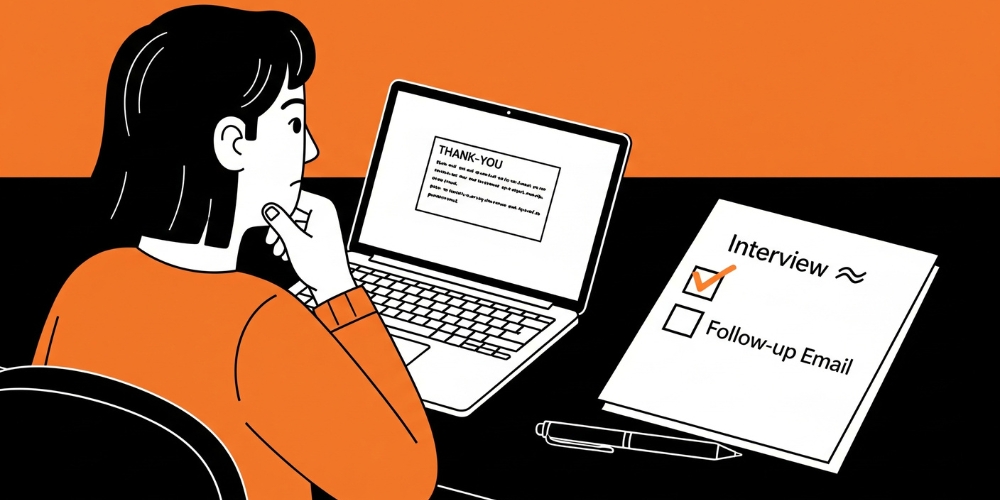
Many candidates forget this final step, but it's a powerful one. A prompt, well-written thank-you note can solidify the great impression you made during the interview.
What to do:
Send a Thank-you Email within 24 Hours
Thank the interviewer for their time, express continued interest, and reflect on a key takeaway from the conversation.
Personalize your Message
Reference something specific that came up, maybe a project they mentioned or a value the company upholds.
Reaffirm your Value
This is your chance to bring it home. After the final interview, a short follow-up email can make a big impact. Keep it simple and remind them why you're a strong fit and why the role excites you. It’s a quick way to show you’re thoughtful, professional, and still all-in, without sounding pushy.
Build Your Follow-Up Email
Tap ✅ to keep or ❌ to skip. At the end, your thank-you email will be ready to send.
Conclusion
A great interview starts long before you walk into the room or log into Zoom. It begins with knowing how to prepare for a job interview and doing it with purpose. It depends on how you show up. Most people forget that it’s not just about getting picked. You’re choosing too. Is the team right? Does the culture click? Is this somewhere you’ll actually grow? Prep with purpose, ask the questions that matter, and trust yourself to know when it feels right. The effort you put in now sets you up for a move that actually moves you forward.

